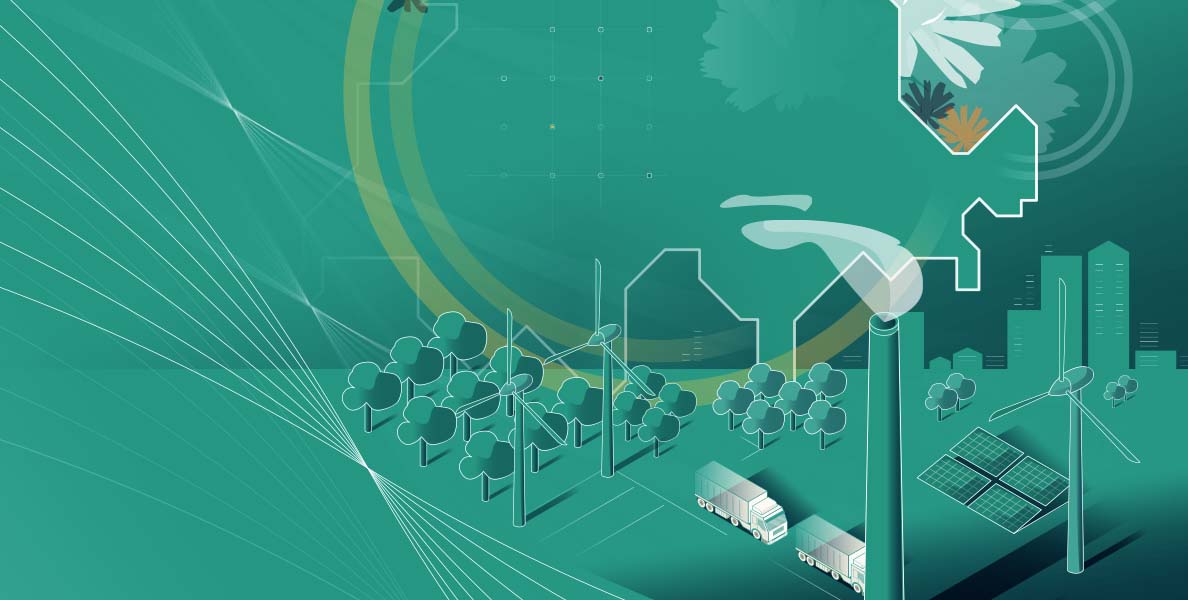These are the words of Julia Steinberger, Professor of Societal Issues related to the Impact of Climate Change at the Institute of Geography and Sustainability of the Faculty of Geosciences and Environment at the University of Lausanne, and lead author of the third part of the IPCC's sixth report published last month.
Faced with the climate urgency, it is difficult not to feel powerless. How can we act individually and collectively in favour of the climate? Greta Thunberg found her own answer, which had the international impact that we know. So did the activist Guillermo Fernandez. This father of three from Fribourg went on hunger strike in front of the Swiss Federal Parliament on 1 November 2021 to denounce the climate emergency. He ended his action after 39 days because the President of the National Council, Irene Kälin (Greens/AG), accepted his demand: to invite the Swiss academies of science to come and present the IPCC's conclusions to parliamentarians during a day of awareness-raising on climate issues, a training session scheduled for 2 May.
Jacques Dubochet, Nobel Prize in Chemistry 2017, Professor Julia Steinberger, her colleagues Samuel Jaccard and Antoine Guisan from the University of Lausanne, and Sonia Seneviratne from the ETHZ, have been involved respectively in climate activism, the drafting of the IPCC report and the activities of the IPBES, and have taken a close interest in the work of Guillermo Fernandez. Together, they were able to coordinate with other scientists his effort to reach out to elected officials with the results that we know. In my opinion, this result is extremely encouraging, but much more difficult to achieve than it seems.
The link between the political and scientific spheres is a complex issue. The responses to the IPCC's previous reports, which were already unambiguous, were disappointing in terms of concrete measures, even though there was a lot of press coverage. This inertia stems from several factors, such as our inability to give up certain elements of comfort, high economic stakes, or a collective and intergenerational dimension that is difficult to grasp. However, it is interesting to note that significant reductions in CO2 have already been recorded in the past as a result of political decisions, but that these measures were only taken in response to specific crises (oil, stock market, health) and not in response to scientific findings or in a proactive way to get out of short-termism. Such a lack of correlation between the conclusions of researchers and behavioural change at the societal level has already occurred in the past with regard to research on the harmful effects of tobacco, asbestos, insecticides or bisphenol A. Science often struggles to make itself heard, especially as some (industry or responsible groups) instil doubt by publishing biased studies and rallying experts to their side. These biases then have a real impact on the resulting regulations, a mechanism even more subtle than the well-known practices of lobbying. This is what Stéphane Foucart, a science journalist, has been documenting for many years and calls the factory of lies.
If we want to prevent the planet from becoming uninhabitable, a contrite posture is not enough. We need to face up to the problem and strike a good balance between science, politics and economics, as Yuval Noah Harari demonstrates in Sapiens, A Brief History of Humanity. Recognising that much of the ambition in climate policy is driven by elected officials and society, last winter, researchers suggested modelling quantitatively people's perception of climate change, the future cost and effectiveness of climate change technologies and how institutions respond to public pressure (Moore et al., 20221). By integrating political and social factors, they were able to demonstrate that people's perceptions, improvements in climate technologies and the responsiveness of political institutions were indeed the main drivers of future emissions, but more importantly, that the interactions between these various elements were potentially far more important than individual actions.
It is now crucial that researchers become more engaged, not just by publishing, but by participating in public debate to build trust with decision-makers and make such a flow of facts and ideas possible. Explaining a lifetime of work is not easy, however. It has to be learned. For this reason, it is imperative that universities include in their plans the need to make the scientific process accessible through scientific and cultural mediation, to strengthen the skills and know-how of its community in terms of mediation, to insist on continuous training of companies and teachers in terms of climate issues, and to commit to research that is anchored in its territory but open to the world, which contributes to supporting and stimulating the ecological transition. This is what the University of Lausanne has done, in particular by creating a new Dicastery for «Relations extérieurs et communication scientifique», and today I salute the commitment of each and every one for this constructive action turned towards the future.
We have little time to cap our greenhouse gas emissions, but it is within our reach, especially if the universities and their researchers become key players in the political landscape.
1 Moore, G.K., Holdsworth, G. and Alverson, K., 2002. Climate change in the North Pacific region over the past three centuries. Nature, 420(6914), pp.401-403.
